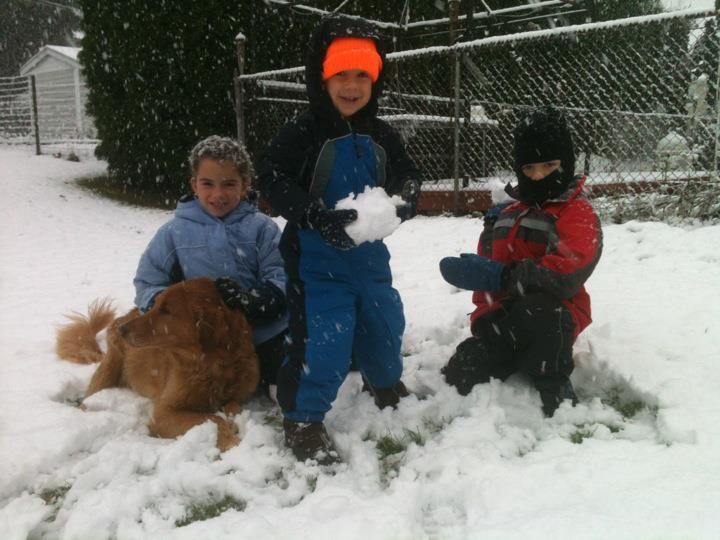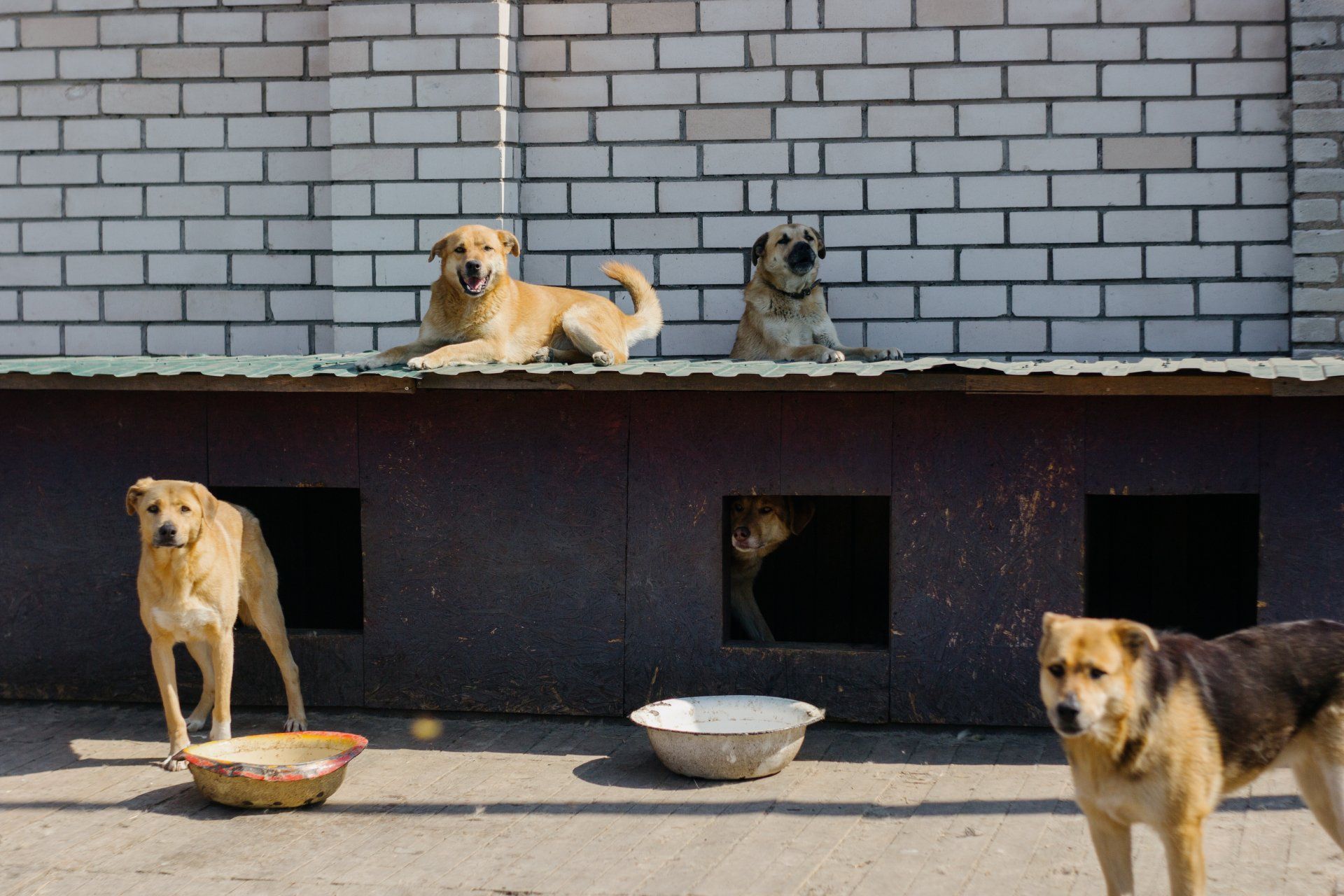Parker Family
Thank you for taking the time to visit our Blog! We thought a good first post would be one in which we tell you a little bit more about our family (at least the humans, since the whole rest of the website is about the pups!), and how we came to be as a breeding business. Enjoy!

Pryce and Somer met in the summer of 1992, where they worked together as lifeguards at a community swimming pool. They quickly became best friends, and (although not yet romantically involved) decided to attend the same college after they graduated high school in 1994.
Their friendship turned into romance in the summer before their freshman year of college (who were they kidding? It was meant to be!), and they were already married by the spring of 1996.
While they were still full-time college students, they welcomed their first child, Myah, into the world later in 1996.
After graduating from Kutztown University (Pryce with a Bachelor’s in Psychology and Somer with hers in Elementary Education) they soon became Houseparents at Milton Hershey School, a pre-K through 12th grade boarding school for economically and socially disadvantaged youth. During that time is when they got their first Golden Retriever, a beautiful boy named Monte, who became the mascot for their student home of 12 high school boys.
In 2002, their second daughter, Claudia, was born. It was also around this time that Pryce and Somer made the decision to homeschool, which turned out to be one of the best decisions they ever made. Homeschooling gave them the ability to spend a lot of time with their kids, and it also gave their lives a flexibility that would later prove to be key in running a business where so much is up to Mother Nature.

In 2005, Pryce and two partners started a side business, focused on buying, flipping and renting homes in the Lebanon PA area. The same year, Will was born, making the Parkers a family of five.
In 2006, the Parkers left Milton Hershey School and moved to Lebanon. Pryce went into the real estate flipping and rental business full time while Somer took part-time work running a tutoring ministry in the evenings. Not long after that, in 2007, Pryce and one of his business partners purchased two Subway restaurants and transitioned out of the real estate business.
Wyatt, the last of the Parker children, was born in 2009, making them a party of 6.
Well, 7…
Because through all of this time and transition, their faithful pup, Monte, was there to brighten every room he entered and every face who saw him. Monte’s life was filled with people and love and adventure and it was as if he had been born to be part of the Parker family.
But in 2010, Monte’s time on earth came to an end. (Some time maybe we will write a blog about the incredible way in which Monte said his goodbyes to his family before he passed, but that is for another time.)
As sad as it was to lose Monte, his passing also opened a new chapter for the Parkers, because about a year later they brought home their very first Doodle, Miss Stella. A few years later, Stella had her first litter of puppies and the Parker family was hooked. Even though there wasn’t really any money motive, the discipline and the wonder of breeding meshed well with the homeschool life. The Parker kids learned lessons on how nature works, how to be responsible for other life, and how to keep up with a rigorous chore schedule. Along the way, they also learned how that work could translate into other peoples’ joy, a fact that sustains the endeavor to this day.
Today, Pryce and his business partner run multiple local businesses. He coaches baseball and likes to get as much time outdoors as possible, if he has time between home improvement projects and kid activities. His favorite part of breeding dogs is assisting the mommas in bringing new puppies into the world. It is a little “miracle of life” moment every time he sees it.
Somer is a homeschool teacher and Homespun Doodles CEO, CFO, CMO, COO, and CBO. In her free time, she likes to take walks and plan what she will be working on when her free time is over. What Somer loves the most about breeding dogs is the look on the faces of families when they come to pick up their babies, and getting the joyful updates that families send in the weeks and months after taking them home.
Myah graduated from York College in the spring of 2019 and is now a Respiratory Therapist for WellSpan Hospital. Her favorite thing about puppies is their sweet breath.
Claudia is currently finishing her schooling in order to pursue a career as a Registered Nurse. She and her beau, Eli, married in 2022. Her favorite part of the puppy business is snuggling the puppies.
Will is still in high school and is a competitive swimmer. Will thinks he would like to be a teacher and coach. His favorite thing to do with the puppies is to lie down and let the puppies attack him with kisses and nibbles.
Wyatt can be equally happy playing baseball or Fortnite. He also plays the violin and is a quarterback on his football team. Wyatt would like to be a professional gamer or play in the MLB or NFL, or maybe just be a famous YouTuber. In other words, he is keeping his options open! His favorite thing about having a puppy breeding business in his home is that there is usually a puppy around for him to sniff and snuggle.
So, that is the Parker Family! Thank you for reading our very first blog post on our new website. Please continue to check back in for more posts on all kinds of things. We hope you will enjoy!




